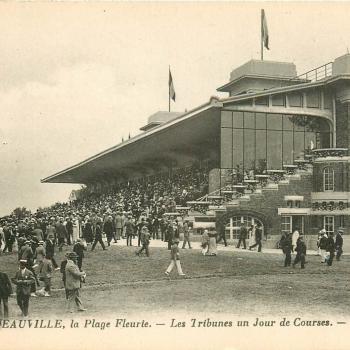We might not have apotheosized the POTUS. We might have regarded them as real life human being full of flaws and not always serving the interests of the country. We might have even looked at Lincoln the way H. L. Mencken did:
Some time ago a publisher told me that there are four kinds of books that seldom, if ever, lose money in the United States—first, murder stories; secondly, novels in which the heroine is forcibly overcome by the hero; thirdly, volumes on spiritualism, occultism and other such claptrap, and fourthly, books on Lincoln. But despite all the vast mass of Lincolniana and the constant discussion of old Abe in other ways, even so elemental a problem as that of his religious ideas—surely an important matter in any competent biography—is yet but half solved. Was he a Christian? Did he believe in the Divinity of Jesus? I am left in doubt. He was very polite about it, and very cautious, as befitted a politician in need of Christian votes, but how much genuine conviction was in that politeness? And if his occasional references to Jesus were thus open to question, what of his rather vague avowals of belief in a personal God and in the immortality of the soul? Herndon and some of his other early friends always maintained that he was an atheist, but the Rev. Willian E. Barton, one of the best of later Lincolnologists, argues that this atheism was simply disbelief in the idiotic Methodist and Baptist dogmas of his time—that nine Christian churches out of ten, if he were live today, would admit him to their high privileges and prerogatives without anything worse than a few warning coughs. As for me, I still wonder.
Lincoln becomes the American solar myth, the chief butt of American credulity and sentimentality. Washington, of late years, has bee perceptible humanized; every schoolboy now knows that he used to swear a good deal, and was a sharp trader, and had a quick eye for a pretty ankle. But meanwhile the varnishers and veneerers have been busily converting Abe into a plaster saint, thus marking hum fit for adoration in the Y.M.C.A.’s. All the popular pictures of him show him in his robes of state, and wearing an expression fit for a man about to be hanged. There is, so far as I know, not a single portrait of him showing him smiling—and yet he must have cackled a good deal, first and last: who ever heard of a storyteller who didn’t? Worse, there is an obvious effort to pump all his human weaknesses out of him, an obvious effort to pump all his human weaknesses out of him, and so leave him a mere moral apparition, a sort of amalgam of John Wesley and the Holy Ghost. What could be more absurd?
Lincoln, in point of fact, was a practical politician of long experience and high talents, and by no means cursed with idealistic superstitions. Until he emerged from Illinois they always put the women, children and clergy to bed when he got a few gourds of corn aboard, and it is a matter of unescapable record that his career in the State Legislature was indistinguishable from that of a Tammany Nietzsche. Even his handling of the slavery question was that of a politician, not that of a messiah. Nothing alarmed him more than the suspicion that he was an Abolitionist, and Barton tells of an occasion when he actually fled town to avoid meeting the issue squarely. An Abolitionist would have published the Emancipation Proclamation the day after the first battle of Bull Run. But Lincoln waited until the time was more favorable—until Lee had been hurled out of Pennsylvania, and more important still, until the political currents were safely running his way. Even so, he freed the slaves in only a part of the country: all the rest continued to clank their chains until he himself was an angel in Heaven. (“Five Men at Random,” 1922)
Don’t get me wrong. It takes an amazing POTUS to save the union the way Lincoln did and worthy are those efforts to remember Lincoln’s birth. But to do that he did not have to be the second coming of John the Baptist.
















